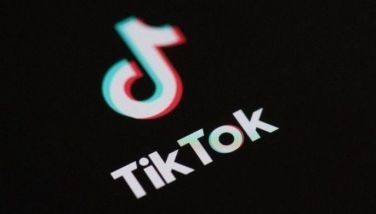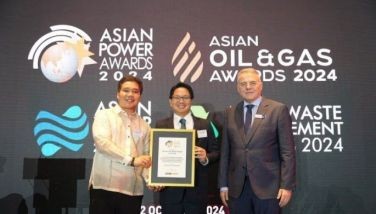Learning about and coping with allergies
July 14, 2005 | 12:00am
Do you usually start your day suffering from excessive sneezing, itchy, watery eyes and a runny nose? Does eating seafood make your skin itchy and look all red and splotchy? Does drinking milk make you sprint toward the toilet?
Well, if you answered yes to any of these questions, then you are most likely suffering from allergies. Take heart, though, because you are not alone as there are approximately seven million other Filipinos who are suffering from this annoying and uncomfortable affliction.
Allergies can gravely affect one’s lifestyle. Imagine how difficult things are if you are suffering from an allergic reaction and you have to make a very important presentation in school, or meet a high-profile client to close a very vital deal. Plus, it’s certainly not fun having to sneeze all the time and face other people with your eyes all watery and droopy, right?
Allergies don’t just disrupt your lifestyle, it can also ruin your budget, especially if you require serious medication. Some people suffer from allergies so badly that they cannot leave their house, resulting in wasted working hours and consequently, lost productivity and wages.
You might be curious as to how allergic reactions occur. Well, this happens when a person with a hyper-alert immune system is exposed to allergens like pollen, house dust mites, molds, animal dander and cockroaches, insect stings, latex, food or medication.
Understandably, several people are more prone to having an allergic reaction depending on their health or occupation. Street sweepers, for one, are easily prone. Their work exposes them to enormous quantities of dust and pollen during the course of their work each day, not to mention the air pollution.
Others at risk are those who have carpets at home due to dust and house dust mites that thrive in the carpets. If you absolutely must have a carpet, make sure that it is regularly and thoroughly cleaned.
Now if you or your friends or relatives are allergic to certain types of food like milk or seafood or even medicine, remember to always read and understand food and drug labels to avert any sort of allergic reaction.
As with all types of illnesses, prevention remains to be the best cure so remember to take note of these three preventive measures in treating allergies.
The primary prevention is to breastfeed exclusively for four to six months. Young children who are at high risk should reduce their exposure to inhalant allergens, while highly irritating allergens must be eliminated in occupational environments.
For secondary prevention, young children who are sensitized to mites, pets or roaches should naturally stay away from these to prevent the onset of allergic disease.
If you exhibit symptoms caused by occupational allergic sensitivity, request that you be transferred to a different area in your office.
Finally, in tertiary prevention, infants who are allergic to cow’s milk should avoid drinking it. A supplement with a hypoallergenic formula is a more viable and safe option.
While there is no cure for allergies, there are several types of medicines to help ease the bothersome symptoms that come with it. The use of anti-allergy medicines or immunotherapy is a fantastic and effective alternative.
Despite the wealth of information on allergies, their prevention and treatment, most Filipinos are still in the dark on how to best cope with them.
Thankfully, United Laboratories Inc. (Unilab), through its anti-allergy tablet and syrup medications Allerin and Allerta, has initiated Allergy Alert! Aksyon Iwas Allergy, an extensive and long-term public service campaign aimed at educating Filipinos about the nature of allergic diseases, decreasing the incidence of allergy in the country, and improving the quality of life of allergy sufferers.
"Our public service campaign demonstrates our commitment as a concerned organization to improve the quality of life of Filipinos nationwide. It’s high time that people are made more aware about the seriousness of the local allergy situation and the medications that are affordable and readily available for their treatment," says Alex Fernandez, vice president of Unilab’s Consumer Health Division.
The campaign is being undertaken through Unilab’s alliance with the Philippine Society of Allergy, Asthma and Immunology (PSAAI), in cooperation with various local government units engaged in the prevention and control of allergy.
"We, at the PSAAI, feel extremely fortunate to have established a partnership with Unilab that is based on mutual health concern and dedication to make our collective thrusts a success," says Dr. Hiyasmin Lim, PSAAI president.
The crusade is being held in conjunction with the first World Allergy Day (WAD), which was celebrated worldwide last July 8.
Organized by the World Health Organization and World Allergy Organization, WAD 2005 intends to educate allergy sufferers as well as give them sound basis for practical action to be taken by governments, healthcare professionals, lay organizations and patients at the national level.
WAD 2005 also aims to increase awareness about the extent of allergic incidences and their overall injurious effects on the health and lives of people worldwide.
In support of WAD 2005, Allergy Alert! Aksyon Iwas Allergy will disseminate information in alliance with private and public institutions, government agencies and concerned groups.
It will also conduct cleanliness campaigns to emphasize the relation of allergic diseases with the environment, and provide anti-allergy medical support to local government units and other organizations.
Currently, Unilab offers three types of anti-allergy treatments: Allerin AH for severe allergy attacks and allergic rhinitis (Diphenhydramine) in syrup for kids; Allerin Reformulated (Diphenhydramine + PPA) for cough and cold due to allergies; and Allerta (Loratadine), an antihistamine tablet and syrup that gives all-day allergic relief without drowsiness.
Unlike other allergy medications, Allerin is up to 20-25 percent lower in price, and Allerta are priced at almost up to 50 percent lower than most other anti-allergy brands, thanks to Unilab’s pharmacoeconomics campaign which aims to provide consumers with highly affordable medicines.
Well, if you answered yes to any of these questions, then you are most likely suffering from allergies. Take heart, though, because you are not alone as there are approximately seven million other Filipinos who are suffering from this annoying and uncomfortable affliction.
Allergies can gravely affect one’s lifestyle. Imagine how difficult things are if you are suffering from an allergic reaction and you have to make a very important presentation in school, or meet a high-profile client to close a very vital deal. Plus, it’s certainly not fun having to sneeze all the time and face other people with your eyes all watery and droopy, right?
Allergies don’t just disrupt your lifestyle, it can also ruin your budget, especially if you require serious medication. Some people suffer from allergies so badly that they cannot leave their house, resulting in wasted working hours and consequently, lost productivity and wages.
You might be curious as to how allergic reactions occur. Well, this happens when a person with a hyper-alert immune system is exposed to allergens like pollen, house dust mites, molds, animal dander and cockroaches, insect stings, latex, food or medication.
Understandably, several people are more prone to having an allergic reaction depending on their health or occupation. Street sweepers, for one, are easily prone. Their work exposes them to enormous quantities of dust and pollen during the course of their work each day, not to mention the air pollution.
Others at risk are those who have carpets at home due to dust and house dust mites that thrive in the carpets. If you absolutely must have a carpet, make sure that it is regularly and thoroughly cleaned.
Now if you or your friends or relatives are allergic to certain types of food like milk or seafood or even medicine, remember to always read and understand food and drug labels to avert any sort of allergic reaction.
As with all types of illnesses, prevention remains to be the best cure so remember to take note of these three preventive measures in treating allergies.
The primary prevention is to breastfeed exclusively for four to six months. Young children who are at high risk should reduce their exposure to inhalant allergens, while highly irritating allergens must be eliminated in occupational environments.
For secondary prevention, young children who are sensitized to mites, pets or roaches should naturally stay away from these to prevent the onset of allergic disease.
If you exhibit symptoms caused by occupational allergic sensitivity, request that you be transferred to a different area in your office.
Finally, in tertiary prevention, infants who are allergic to cow’s milk should avoid drinking it. A supplement with a hypoallergenic formula is a more viable and safe option.
While there is no cure for allergies, there are several types of medicines to help ease the bothersome symptoms that come with it. The use of anti-allergy medicines or immunotherapy is a fantastic and effective alternative.
Despite the wealth of information on allergies, their prevention and treatment, most Filipinos are still in the dark on how to best cope with them.
Thankfully, United Laboratories Inc. (Unilab), through its anti-allergy tablet and syrup medications Allerin and Allerta, has initiated Allergy Alert! Aksyon Iwas Allergy, an extensive and long-term public service campaign aimed at educating Filipinos about the nature of allergic diseases, decreasing the incidence of allergy in the country, and improving the quality of life of allergy sufferers.
"Our public service campaign demonstrates our commitment as a concerned organization to improve the quality of life of Filipinos nationwide. It’s high time that people are made more aware about the seriousness of the local allergy situation and the medications that are affordable and readily available for their treatment," says Alex Fernandez, vice president of Unilab’s Consumer Health Division.
The campaign is being undertaken through Unilab’s alliance with the Philippine Society of Allergy, Asthma and Immunology (PSAAI), in cooperation with various local government units engaged in the prevention and control of allergy.
"We, at the PSAAI, feel extremely fortunate to have established a partnership with Unilab that is based on mutual health concern and dedication to make our collective thrusts a success," says Dr. Hiyasmin Lim, PSAAI president.
The crusade is being held in conjunction with the first World Allergy Day (WAD), which was celebrated worldwide last July 8.
Organized by the World Health Organization and World Allergy Organization, WAD 2005 intends to educate allergy sufferers as well as give them sound basis for practical action to be taken by governments, healthcare professionals, lay organizations and patients at the national level.
WAD 2005 also aims to increase awareness about the extent of allergic incidences and their overall injurious effects on the health and lives of people worldwide.
In support of WAD 2005, Allergy Alert! Aksyon Iwas Allergy will disseminate information in alliance with private and public institutions, government agencies and concerned groups.
It will also conduct cleanliness campaigns to emphasize the relation of allergic diseases with the environment, and provide anti-allergy medical support to local government units and other organizations.
Currently, Unilab offers three types of anti-allergy treatments: Allerin AH for severe allergy attacks and allergic rhinitis (Diphenhydramine) in syrup for kids; Allerin Reformulated (Diphenhydramine + PPA) for cough and cold due to allergies; and Allerta (Loratadine), an antihistamine tablet and syrup that gives all-day allergic relief without drowsiness.
Unlike other allergy medications, Allerin is up to 20-25 percent lower in price, and Allerta are priced at almost up to 50 percent lower than most other anti-allergy brands, thanks to Unilab’s pharmacoeconomics campaign which aims to provide consumers with highly affordable medicines.
BrandSpace Articles
<
>
- Latest
Latest
Latest
March 3, 2025 - 6:14pm
By Dominique Nicole Flores | March 3, 2025 - 6:14pm
March 3, 2025 - 5:00pm
March 3, 2025 - 5:00pm
January 10, 2025 - 12:25pm
By Nic Satur Jr. | January 10, 2025 - 12:25pm
December 16, 2024 - 10:38am
December 16, 2024 - 10:38am
December 2, 2024 - 6:19pm
December 2, 2024 - 6:19pm
October 25, 2024 - 9:00am
October 25, 2024 - 9:00am
Recommended




























